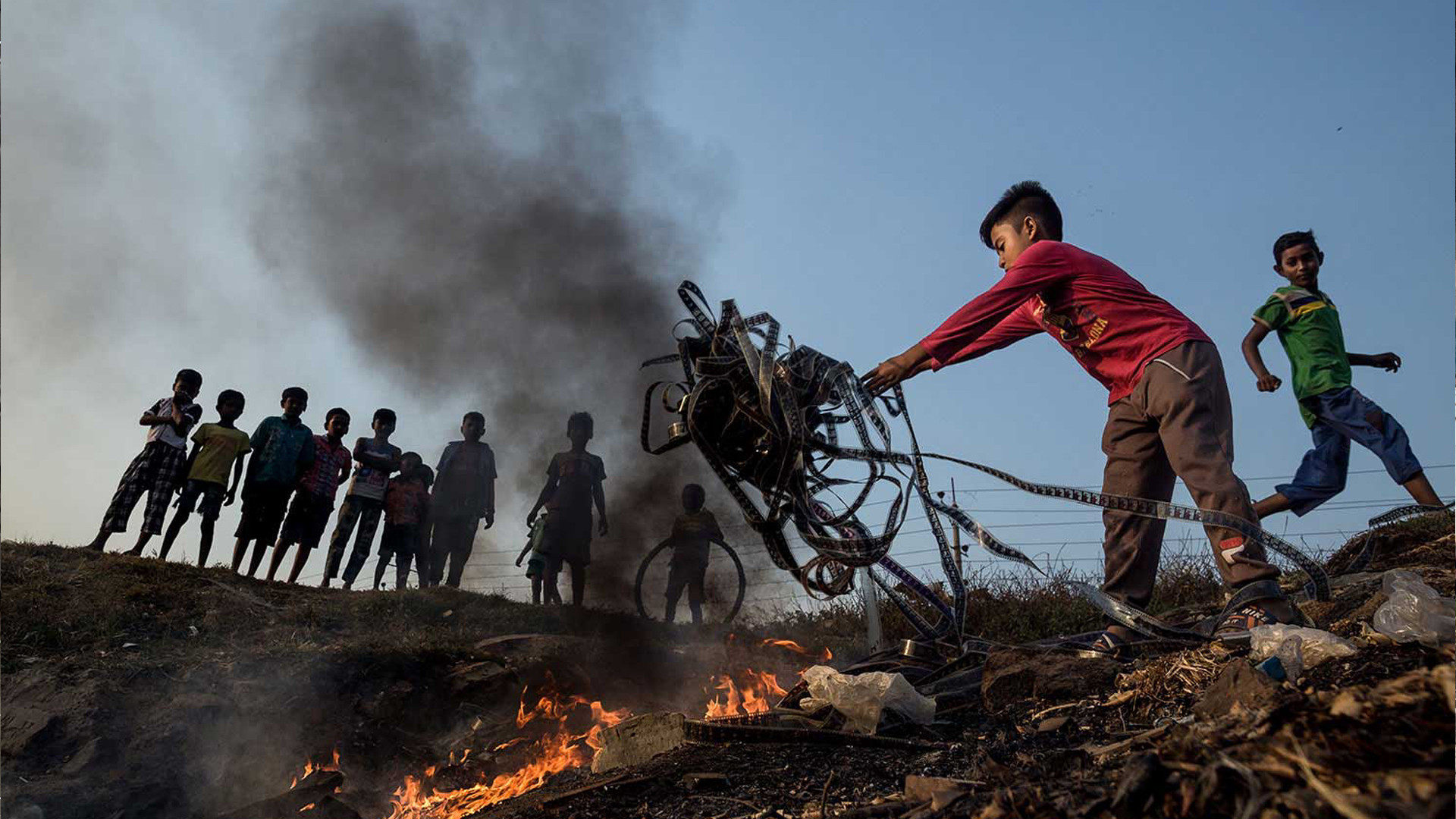Environmental Education
Environmental Education and Sustainability Projects in Bangladesh
Background
Bangladesh, as one of the most climate-vulnerable countries in the world, faces rising sea levels, frequent flooding, river erosion, salinity intrusion, air and water pollution, and biodiversity loss. Despite these escalating challenges, environmental awareness among the youth remains limited.
Integrating environmental education into the core of Bangladesh’s schooling system is crucial to developing a generation that understands the urgency of these issues and is empowered to act.
Rationale
Conventional education often overlooks environmental realities that directly affect communities. An education system that connects classroom learning to real-world environmental problems can build a generation of responsible citizens, critical thinkers, and proactive problem-solvers.
Moreover, empowering students to lead sustainability initiatives fosters community resilience and long-term ecological stewardship, which Bangladesh urgently needs to ensure a sustainable future.
Implementation Strategy
1. Green Schools Program
Goal: Make every school a microcosm of sustainable living.
Activities:
- School Gardens: Develop vegetable gardens in schoolyards to teach students about organic farming, food security, and the benefits of biodiversity.
- Tree-Planting Drives: Each student could be responsible for planting and caring for at least one tree annually.
- Composting Projects: Introduce organic composting bins for food waste from school canteens, reducing landfill pressure and teaching waste management.
- Recycling Initiatives: Set up simple, student-managed recycling programs for paper, plastic, and e-waste.
Suitability for Bangladesh:
- Utilizes Bangladesh’s agrarian knowledge.
- Encourages community and family involvement.
- Can be adapted easily even in low-resource rural schools.
2. Climate Literacy Curriculum
Goal: Create a curriculum that blends science with practical environmental understanding.
Topics to Cover:
- Basics of climate change and global warming, localized to Bangladesh's experiences (e.g., floods, cyclones).
- Sustainable farming techniques like integrated pest management, organic farming, and vertical gardening.
- Water conservation methods such as rainwater harvesting.
- Forest and river conservation efforts to protect the Sundarbans and other ecosystems.
- Renewable energy education, including the use of solar energy (important for rural electrification in Bangladesh).
Method:
- Incorporate lessons into existing science, geography, and social studies courses.
- Use interactive teaching methods — field trips, community surveys, debates, exhibitions, and local eco-campaigns.
Suitability for Bangladesh:
- Builds on local examples like the resilience of coastal communities.
- Promotes indigenous knowledge of environmental management.
3. Student-Led Environmental Projects
Goal: Enable students to become environmental leaders within their communities.
Examples of Projects:
- Local Clean-Up Campaigns: Organize regular drives to clean riversides, parks, and markets.
- Eco-Clubs: Form "Green Clubs" in each school to take up sustainability challenges such as waste management, awareness drives, or energy-saving campaigns.
- Plastic-Free Schools Campaign: Encourage alternatives like jute bags, bamboo utensils — drawing on Bangladesh’s traditional materials.
- School-to-Community Linkages: Students can train parents and local communities in eco-friendly practices (e.g., building bio-toilets, solar panel maintenance).
Suitability for Bangladesh:
- Empowers youth leadership.
- Encourages low-cost, high-impact initiatives suitable for urban and rural communities.
Expected Outcomes
- Increased Ecological Awareness
- Students and communities will understand the direct impacts of climate change and pollution on their lives.
- Student Leadership in Sustainability
- Youth will drive local initiatives, influencing behavior change in wider society.
- Long-Term Environmental Stewardship
- Students will grow into environmentally responsible adults, shaping sustainable policies and practices in the future.
- Community Empowerment
- Schools will act as centers of environmental innovation, spreading knowledge into broader society.
- Reduced Environmental Footprint
- Recycling, composting, tree planting, and sustainable farming will directly contribute to reducing waste, improving biodiversity, and fighting climate degradation locally.
Bangladesh’s future depends on how well it can prepare its younger generations to meet the environmental challenges ahead.
Environmental Education and Sustainability Projects rooted in schools will not only cultivate knowledge but also inspire action, responsibility, and innovation at every level of society. By investing in this educational revolution now, Bangladesh can ensure a resilient, sustainable, and prosperous future for all.


